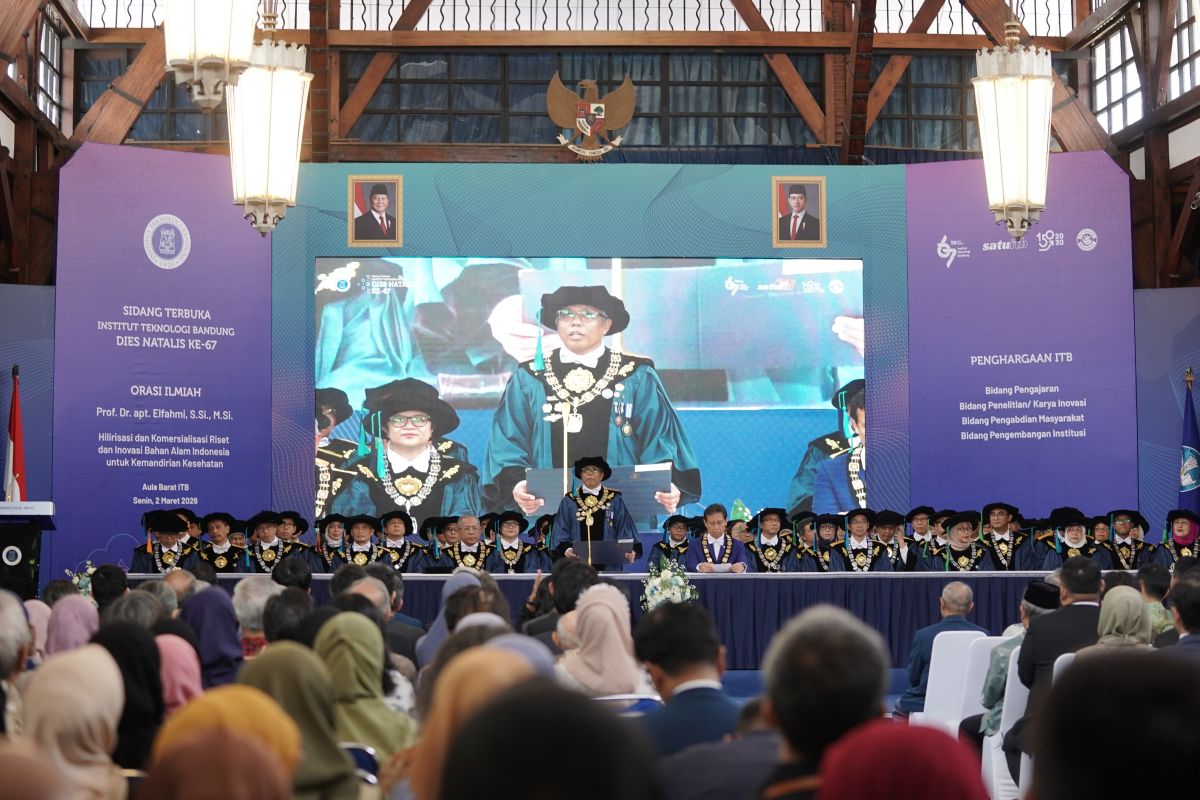Solution to Tackle Future Foods and Energy Crisis from Prof. Yazid Bindar
By Adi Permana
Editor Adi Permana

BANDUNG, itb.ac.id – Dependency on fossil energy should be rethought because in 40 years it is predicted that the world will experience declining production of fossil energy be it in oil, coal and gas. These energy sources are not renewable and one day will run out.
Prof. Yazid Bindar, a professor from Faculty of Industrial Technology of ITB said that oil fuels is always be on demand. At the same time, the production of green oil that comes such as from palm oil still cannot fulfill the need for oil today and in the future.
“Today’s generation should prepare because it is an impending problem. All lives in the world depend on fossil energy. One of the promoted technologies is biomass pyrolysis, which is heating the biomass up to 600 degree Celsius and produce liquid product called bio-crude oil, gas called bio-pyrolysis gas, and solid product called bio-char,” Prof. Yazid Bindar said, on Monday (29/7/2019).
*Bio-crude oil
Prof. Yazid explained that today there are 7 basic needs of the world, namely clean air, clean water, foods, health, houses (residents), home energy (electricity), and transportation. One of the problems the future generation will face is food crisis due to dependency on nitrogen fertilizer produced from natural gas and coals. When natural gas and coals decline, and nitrogen fertilizer is out of supply, the world food production will plummet.
In agriculture, we know intensification and extensification. Intensification is an effort to enhance crop yield without land expansion; one way to do it is by using fertilizer. Extensification, on the other hand, requires land expansion.
Regarding the use of fertilizer as intensification method, Prof. Yazid speaks about his analysis that in the next 40 years, the world will undergo fertilizer’s lack of supply, aligned with fossil energy crisis, as it was created from nitrogen and hydrogen turned into ammonia. Ammonia is converted into various nitrogen fertilizers such as urea.
Today’s condition, he said, saw yield’s dependence on fertilizer to increase production. But it would turn bad when fertilizer crisis happens. Hence, the solution to the problem is by preparing the soil using natural means such as adding nitrogen. It can be done by adding bio-char to the soil routinely, systematically, and starting from today.
His study on food problems and the solution is written on a paper titled “Carbohydrate Foods Now and Future: Problems and Solutions within the Limits on the World Food Supply Capability.” Prof. Yazid said that the writing was presented on International Conference on Food and Bioenergy in Bandung on 30 July 2019.
“A land without fertilizer will lose its production capacity down to 1/3 of its optimal. For example, one hectare area production go down from 5 ton to 1.5 ton. In addition, population also increases. To tackle that problem is by changing the custom to consumption of substitute carbohydrate. It is not easy because the culture must change, mindset must change,” he said
*Flour made from cassava and breadfruit as wheat substitute
Prof. Yazid offers two solution to the problem, first is by running “sustainable agriculture” and second is by preparing carbohydrate foods other than rice and wheat as staple, and it will require people to change custom to substitute carbohydrate consumption. The “sustainable agriculture” is the use of bio-char as ingredient for land reparation and rehabilitation. Bio-char is a charcoal produced from biomass pyrolysis.
Bio-char has several benefits. It can raise soil PH, soil microbiology, soil remediation, crop yield quaility, reduce nutrient leakage, greenhouse gas emission, soil fertility, drought resilience, and carbon sequestration.
Production of Bio-Char
Bio-Char is produced in biomass production workshop laboratory by using pyrolysis. The biomass is processed using pyrolyzer, provided by the cooperation with BDPKS, for palm oil biomass and RTC Pertamina for non-palm oil biomass. The device can work under 300-600 degree Celsius.
*Pyrolyzer
Pyrolysis is a method to degrade organic materials through heating to produce liquid product, gas product, and solid product called bio-char. To make bio-char, first the biomass is mashed. The biomass could be made from any plants used for fuel, such as wood, coconut shell and others. The starch is then heated up to 600 degree Celsius.
The biomass is then decomposed into volatile compound and then cooled. Condensed materials turn into bio-crude oil and gas materials is returned to be burned again. “The remains are charcoal called bio-char. We do not use that as energy source but we use it to rehabilitate soil,” he said.
*Bio-char made from coconut shell
The carbon-rich bio-char is used to fertilize the soil and can stay in the soil for a long time. However it takes more processes than that of common fertilizer. “The thing is do we want to experience a decline in production first because we do not use fertilizer,” he said.
Prof. Yazid is currently preparing industrial production system of bio-char to fulfill massive demand of bio-char for future continuity where fossil fuel-based nitrogen fertilizer ceases.





.jpeg)
.jpg)
.jpg)


